A cat's eyes are more than a window to the feline soul. The eyes are amazingly intricate organs that provide our little predators with critical sensory input.
Unfortunately, eyes are also very delicate. They may not need constant grooming or require any special routine care, but when eye problems occur in cats, owners have to take notice and act quickly.
Enter Dr. Alexandra van der Woerdt, DVM, a renowned veterinarian and ophthalmology expert.
She has agreed to help us shed some light on cat eye issues - from the most common to the rare, from the seemingly benign to the critically severe.
With credentials from both the American and European Colleges of Veterinary Ophthalmologists, Dr. van der Woerdt is set to share a wealth of knowledge on feline eye health in an enlightening Q&A session.
What might those enchanting yellow, green, or blue eyes be hiding? What signs of trouble should we look for? And when do we need to act, and act fast?
Let's dive into the fascinating world of feline eyes and their health. It's a conversation you won't want to miss!
What Are The Most Common Eye Problems In Cats?
There are several eye issues that vets see in cats.
Conjunctivitis is a common condition that affects many cats and it basically means an infection of the inner side of the eyelid and the surface of the eye itself.
There can be many reasons for conjunctivitis in cats, and it's imperative for owners to consult a veterinarian as soon as symptoms appear.
The Feline Herpes virus is a common cause of eye infections which can have severe consequences for the eyes.
This is especially common in cats that were born "on the streets" or come from shelters. The Herpes virus typically affects young kittens and shows itself as an upper respiratory infection.
I am sure you have seen kittens that are sneezing and have watery eyes. That is often the work of the Herpes virus.
The Feline Herpes virus affects the tissues that line the eyes and thereby causes inflammation of the conjunctiva. It can cause the formation of corneal ulcers as well.
Severe complications can occur if secondary bacterial infections get into the corneal ulcers. These can lead to corneal ulcers that are so severe that they can actually cause corneal perforation.
These kittens' eyes literally rupture, ending in blindness.
Dr. van der Woerdt
What Types Of Eye Issues Require Immediate Veterinary Attention?
Immediate veterinary attention is indicated in case of any type of trauma to the eye(s) or surrounding tissues, sudden color change of the eye(s), or squinting/discharge that persists for more than one or two days.
In young kittens with viral-induced ulcers with secondary bacterial infections, immediate aggressive treatment can make the difference between a blind eye and an eye that will have great vision for the rest of the cat's life.
Do not delay treatment and get any kitten with eye symptoms to the vet immediately.
Dr. van der Woerdt
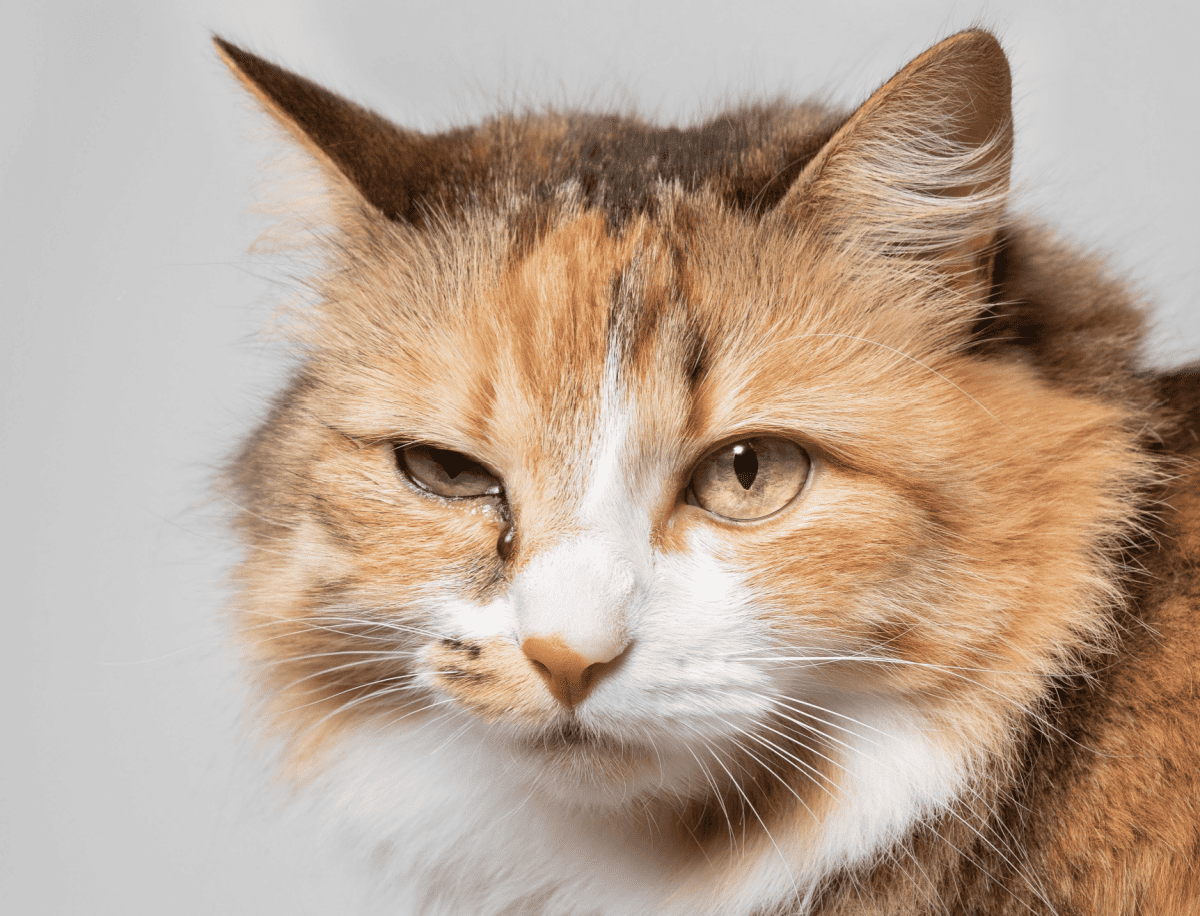
Can Eye Problems Be A Symptom Of Other Underlying Medical Issues?
The eyes can be the "window to the rest of the cat's body". There are several conditions that can first manifest themselves in changes in the eyes.
Anterior uveitis (inflammation of the iris) is often associated with systemic diseases. Systemic hypertension often manifests itself first as bleeding in the eye or a decrease in vision.
Only your veterinarian can diagnose eye conditions. He or she will also perform an overall check that will help them decide the cause of the cat's eye symptoms.
Dr. van der Woerdt
What Are The Typical Eye Problems Vets See With Senior Cats?
There are fortunately not that many issues that typically arise with cat eyes as they age. They do of course get a very dense lens (nuclear sclerosis) as they get older.
This may show mild cloudiness but will have no significant effect on vision and does not require any treatment.
The older the cat gets, the more likely it is that it may develop systemic diseases that may involve the eyes as well.
It's important to have regular veterinary checkups for senior cats and monitor them for changes, including in the eyes.
Dr. van der Woerdt
How Can An Owner Tell When A Cat Doesn't See Well Anymore?
Cats adapt extremely well to a gradual decline in vision and many owners are not aware of vision loss until they do some significant moving around of furniture in their house.
I have known blind cats who carry on as usual, including jumping on top of refrigerators!
Signs that owners may see are likely to be subtle until significant vision loss is present.
The cat may play less with his or her toys, hesitate more when jumping on things, misjudge distances when jumping, and things like that.
But these may also simply be signs of aging and unrelated to cat eye problems. The most important thing that owners can do is seek veterinary care if they suspect there may be an issue with the eyes.
Dr. van der Woerdt
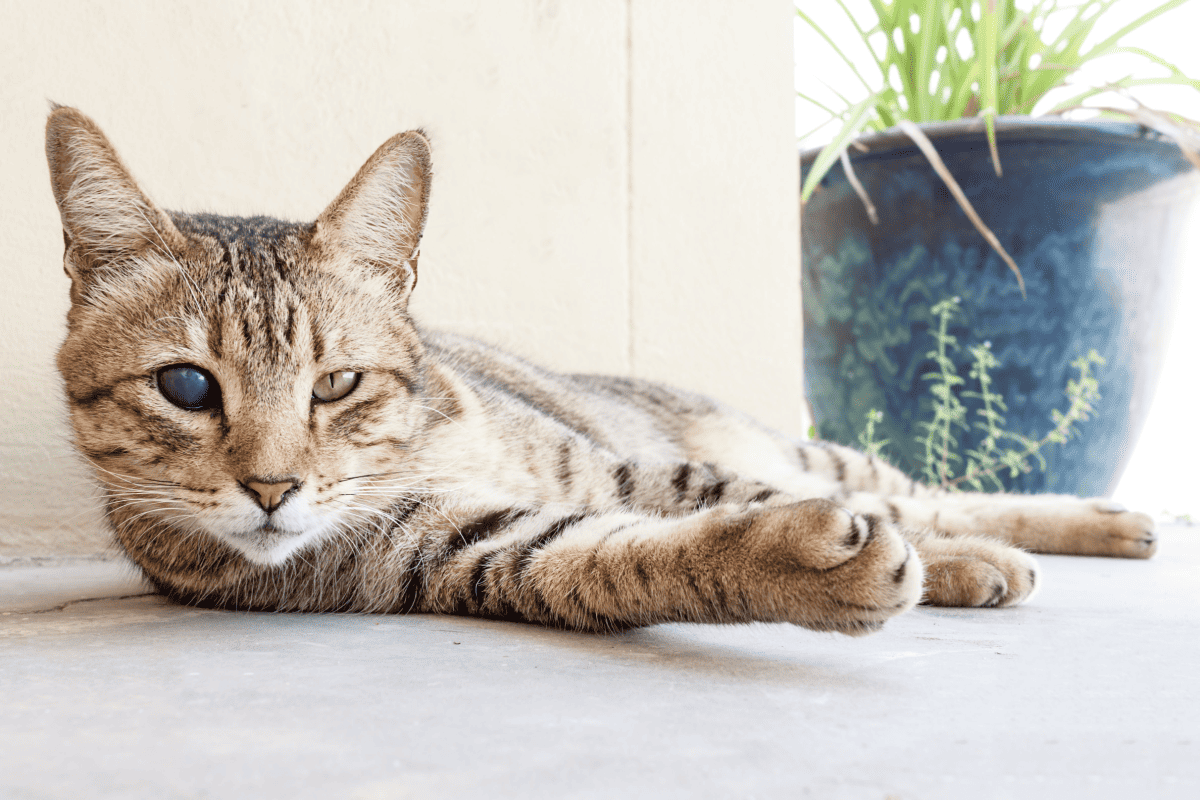
How Does A Vet Diagnose Loss Of Sight (Partial Or Complete)?
Vision testing can be difficult in cats as it requires the cat's cooperation, and not all cats agree with it.
Vision testing that is typically done in a veterinarian's office is the response to hand motions or evaluation of things like whether or not cats track falling cotton balls (no noise associated with that).
I find that especially breeds such as the Persian cat often simply ignore what I am doing although they see just fine. Cats are cats!
Dr. van der Woerdt
SIGN UP FOR THECATSITE'S EMAIL UPDATES >
Many Of Our Members Deal With Chronic Feline Herpes. What Can You Tell Us About Ocular Herpes In Cats?
Feline Herpes virus is the most common cause of eye infections in cats.
They typically get this as young kittens and the virus goes dormant in the body. It can resurface in times of stress or as the cat ages with a decrease in the immune system.
It is difficult to protect cats from this as the virus is so common. Especially if cats come from a shelter environment, they will likely have been in contact with the virus.
It is always a good idea to keep cats with active diseases (sneezing, red, watery eyes) separated from the other cats.
Feline herpes is a very frustrating disease because we can never cure it. Eliminating stress is important in cats prone to recurrences.
Fortunately, medications are available nowadays that only need to be given a few times per day, rather than the 6-8 times with the traditional medications.
Dr. van der Woerdt
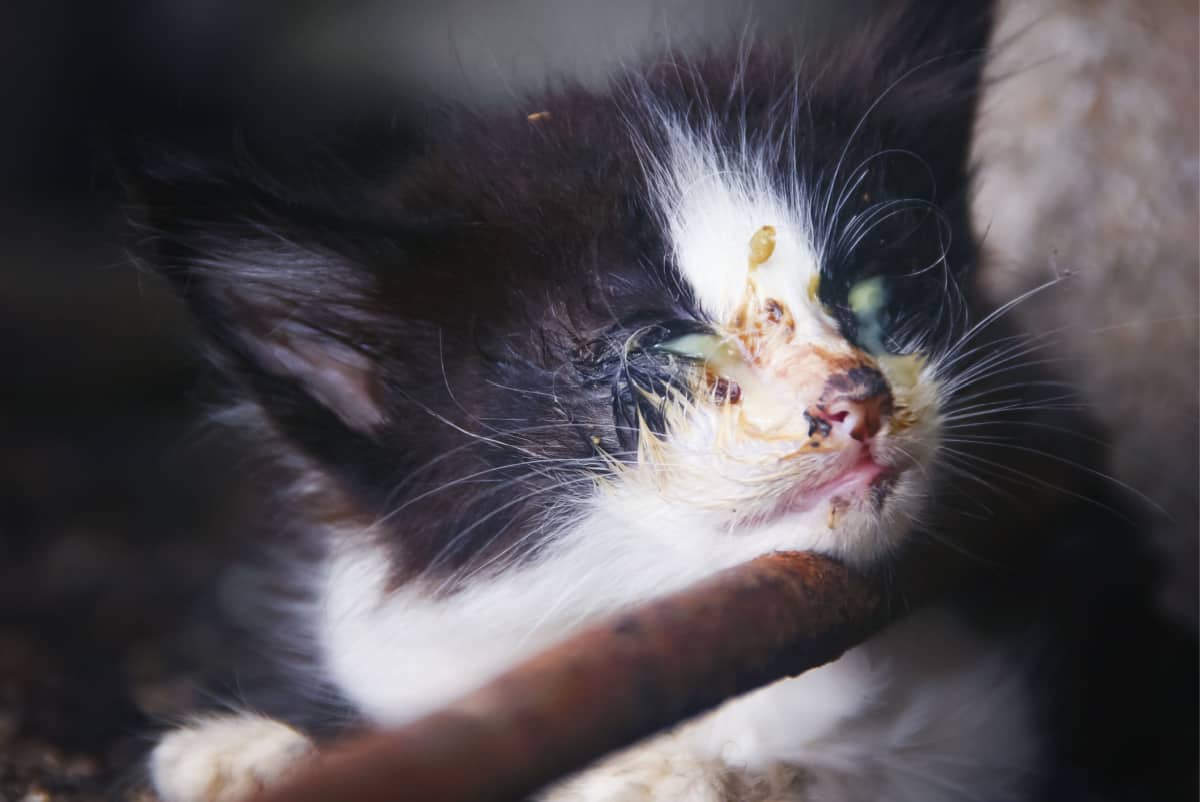
Are There Any Zoonotic Eye Infections That Cats Can Infect Their Owners With?
The one zoonotic eye disease that comes to mind is Chlamydophila, which has zoonotic potential, especially for immunocompromised people.
This will typically show up as conjunctivitis in both cats and people.
Dr. van der Woerdt
When Should A Cat Owner Consider Asking For A Referral To A Certified Veterinary Ophthalmologist? What Can They Do That Our Regular Vets Can't?
The specialist has equipment that the general practitioner does not have.
But more important than that, a specialist has undergone many years of additional training and a rigid examination process in the field of veterinary ophthalmology and will have a wealth of knowledge and experience about this one organ, the eye, that a general veterinarian is unlikely to have.
Many ocular diseases can be treated by general veterinarians. Referral to a specialist is a good idea if no improvement is noted in the condition despite treatment.
Dr. van der Woerdt
We'd like to thank Dr. Alexandra van der Woerdt on behalf of TheCatSite community for taking the time to answer our questions!
If you're worried that your cat may be suffering from an eye problem, please do not delay medical care. Call your vet, describe the symptoms, and follow professional medical advice.
Original Interview: February 2018
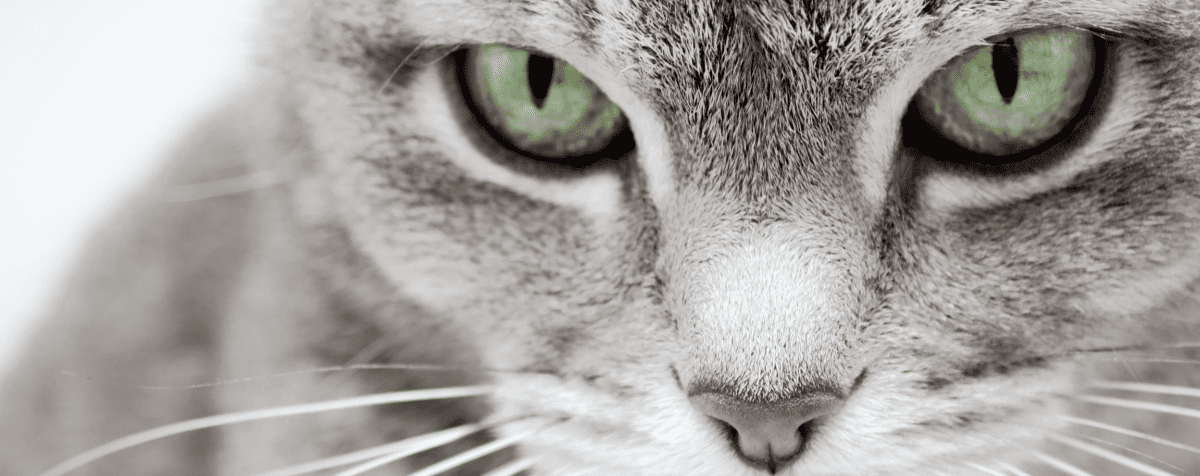
Protecting Your Feline's Peepers: Home Care Tips for Healthy Cat Eyes
Ensuring your cat's eyes are healthy is not just about treating issues as they arise. It's about prevention and proactive care. So, what steps can you take to maintain your feline's eye health?
Start by giving your cat's eyes a daily once-over. Routine checks for redness, excessive tearing, changes in color or shape, and sensitivity to light are essential.
Early detection can make all the difference, heading off discomfort and more serious complications.
Another crucial step involves regular grooming, focusing particularly around the eyes.
Use a damp, soft cloth to gently wipe away any debris, always working from the inner corner of the eye outward. But remember - be gentle. You don't want to cause any irritation.
The diet also plays a vital role in your cat's eye health. Feeding your feline friend a balanced diet rich in antioxidants can support their overall eye health.
It's also a good idea to avoid overcrowding with other cats and to stay current with your cat's yearly vaccinations.
These precautions can help prevent the spread of infectious diseases that can affect your cat's eyes.
And what if you notice your cat has eye discharge? The American Society for the Prevention of Cruelty to Animals recommends a safe and straightforward method.
Dip a cotton ball in water and wipe away the discharge, using a fresh cotton ball for each eye. However, it's essential to avoid over-the-counter eye drops or washes unless prescribed by your vet.
And most importantly, always consult with a vet for the best course of action. The correct treatment is crucial for your cat's well-being.
Armed with these tips and regular check-ups with your veterinarian, you can ensure that your cat's eyes remain as bright and healthy as they should be. Start today - because proactive eye care leads to a happier, healthier feline friend.
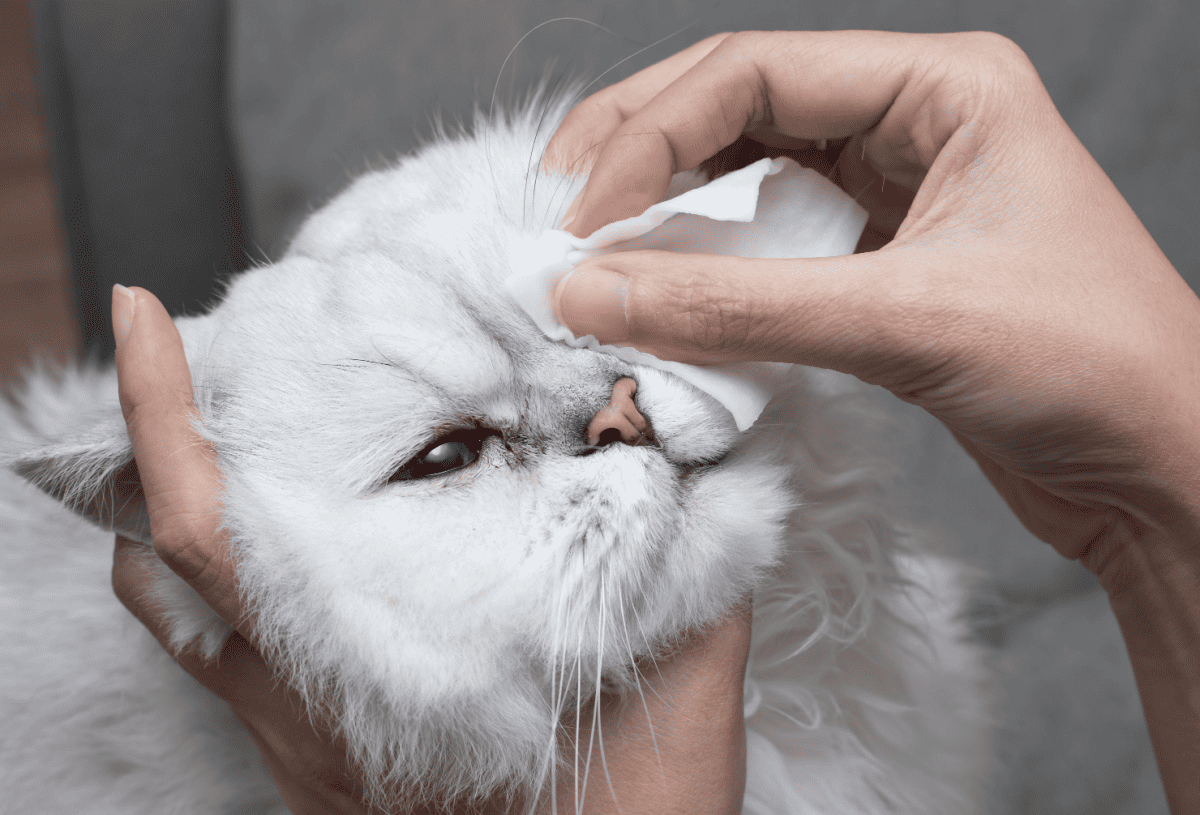
Dig Deeper: Learning More About Your Cat's Eye Health
Continue your journey into cat eye health by referencing our forums. You'll find valuable information that deepens your understanding and connect with others that have similar experiences with their cats.
Additionally, next time you're at the vet, come prepared. Ask questions tailored to your cat's needs. Not sure what to ask? Here are a few ideas to get you started:
- What specific signs of eye issues should I watch for in my cat's breed?
- How often should I check my cat's eyes at home?
- What steps can I take to improve my cat's diet for better eye health?
Remember, your veterinarian is your partner in your cat's health. Don't hesitate to seek their guidance.
Final Thoughts: Ensuring Optimal Eye Health for Your Cat
As we wrap up our journey into feline eye health, remember this: your cat's eyes are a window into their well-being. Staying attentive and proactive can make a world of difference.
Routine check-ups, balanced nutrition, and good hygiene practices go a long way in preventing eye problems. Each breed may have unique challenges, so understand what's at stake for your particular pet.
Most importantly, don't ignore any symptoms. Consult your vet promptly if something seems off. They're your best ally in safeguarding your cat's eye health.
From preventative measures to recognizing potential issues, you now hold the key to ensuring your cat's eyes remain bright and healthy.
Keep learning, stay vigilant, and remember — the love you give to your cat's health returns to you in countless moments of joy.
Your furry friend deserves the best. And with your continued care and attention, that's exactly what they'll get.
SIGN UP FOR THECATSITE'S EMAIL UPDATES >
You might also like: Your Cat’s Eyes and Vision: The Complete Guide
Odd-Eyed Cats: The Fascinating Phenomenon
Note: We may get commissions for purchases made through links on this page.

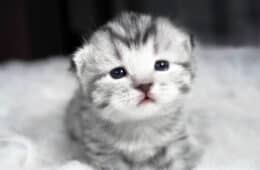
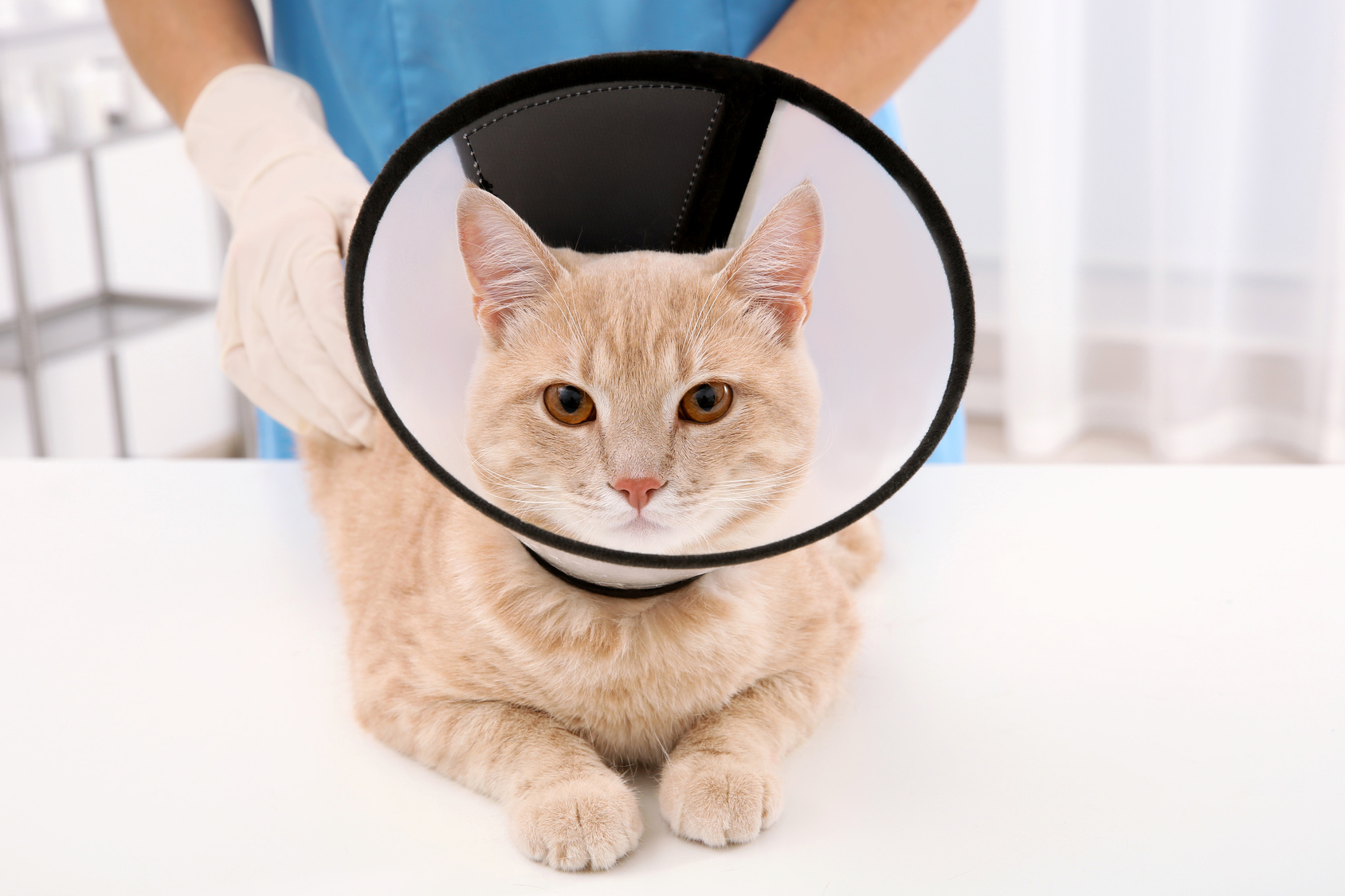
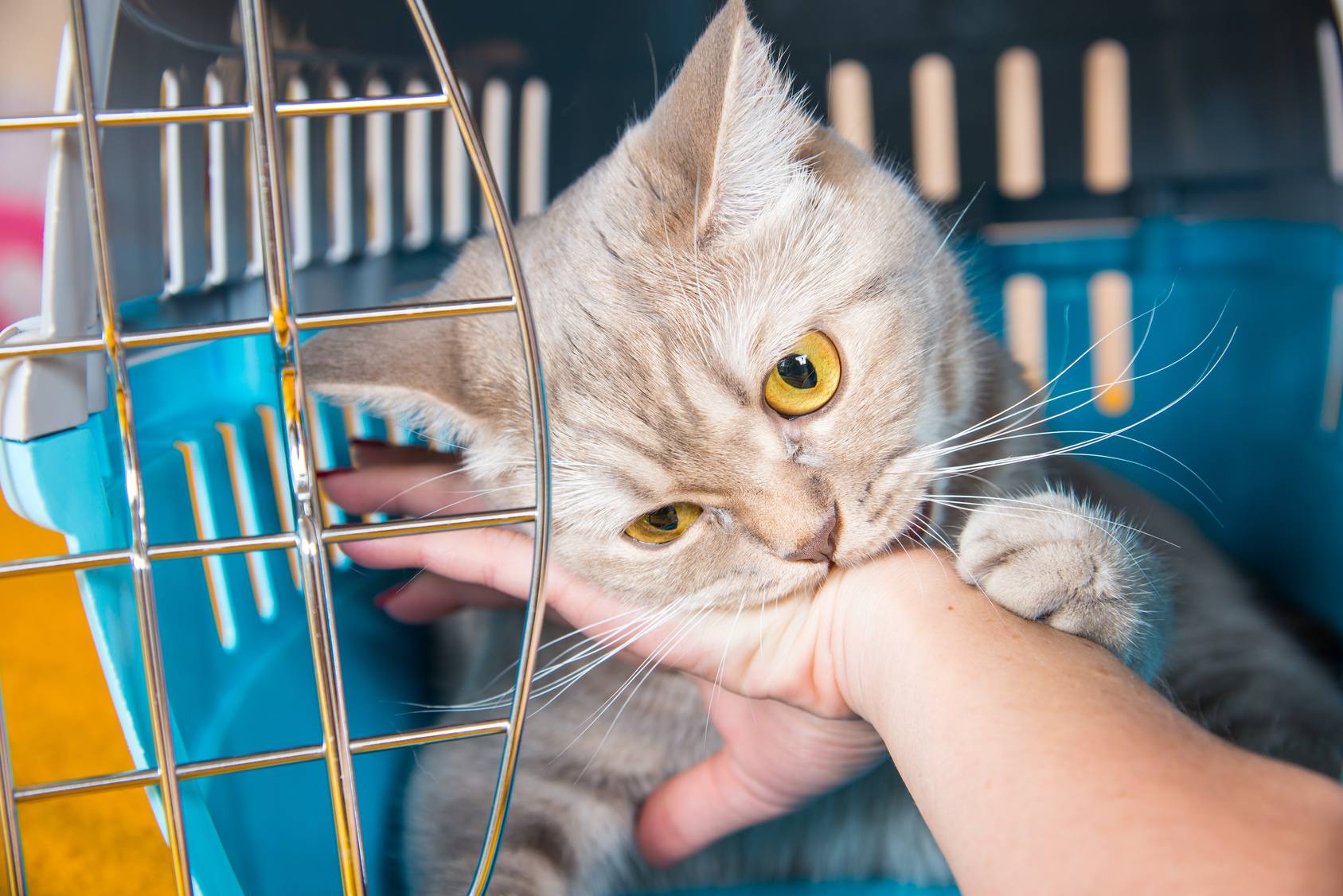
12 comments on “Eye Problems In Cats – What Every Owner Needs To Know”